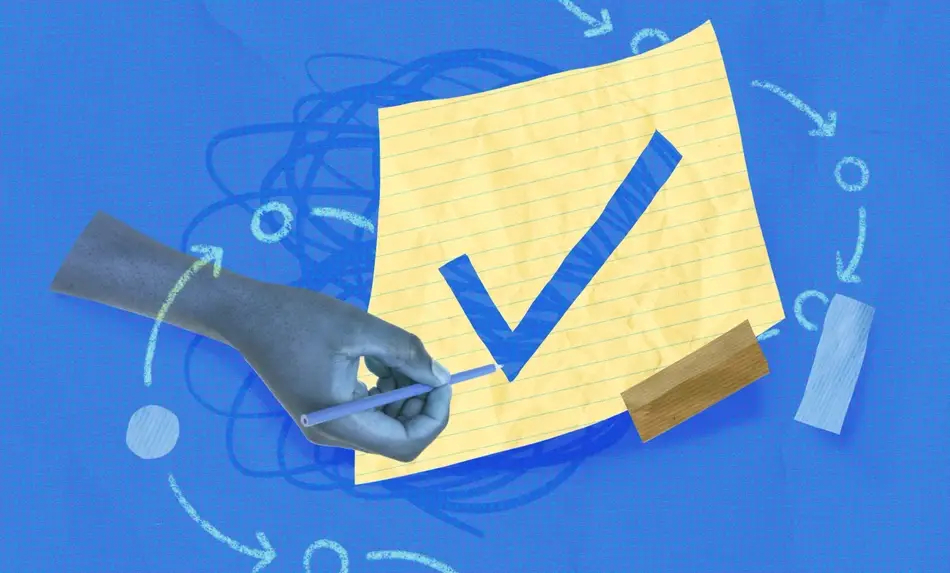Your End-of-Internship Checklist

If you're spending your semester interning, you’re likely nearing the halfway point of your commitment and may already be focused on your next step.
However, before you start thinking about turning in your ID badge and packing up your pens, there are several important steps to take to end your internship on a high note—and in a way that will ensure your experience will continue to benefit you, long after your final day.
Together with Denise Amisial, Idealist’s former Client Relations Manager, I’ve organized a checklist for your final weeks as an intern.
With two weeks remaining, you should:
- Take an inventory of your accomplishments. Put pen to paper and list out what you accomplished during the course of your internship. Use this same list as a reference for updating your resume.
- Consider how your accomplishments measure up. Ideally, at the start of the internship, you would have also jotted down your goals for the program. Dust off that goals list and see how well your accomplishments align with your objectives and expectations of the position from the beginning of the term. If you don’t already have a list of goals, see if you can channel the “beginning-of-semester” you and remember what you had hoped to get out of your internship when you were new to the role.
- Schedule coffee dates. Before the end-of-internship rush sets in, be sure to schedule coffee (or Zooms) with the folks you’d like to stay connected to after the semester.
With one week remaining, you should:
Gather your numbers. It’s far easier to collect data while you still have access to various social media accounts, CRMs, email marketing platforms, etc. Consider every number from your current internship that may be useful to you as you apply for future internships or jobs. Here are a few examples of the numbers you may want for your records.
If you’re a communications intern:
- Constituents reached via email
- Email open rates
- Email click through rates
- Number of original messages drafted
- Engagement rates (Facebook, Twitter, Instagram, etc.) for the messages you crafted
If you’re a development intern:
- Number of constituents or donor relationships you developed and/or nurtured
- Attendance at any events that you helped to organize
- Funds raised as a result of your efforts and work
If you’re a programs intern:
- Constituents or clients who benefited from programs and services that you worked on
In your final days on the internship, you should:
- Get feedback from your manager. Even if it’s not built in as a formal part of your internship, ask for a review. Internships should be a learning experience; but without actionable feedback, we can’t be expected to grow.
- Draft a thank-you letter (or two). This one should be a given, but just in case, don’t forget to say “thanks!” to the people who have helped you out along the way. A show of appreciation for the opportunity, as well as for someone's time and insight, will leave a great final impression.
After you’ve officially ended your internship, you should:
- Update your resume. It’s easier to jot down your responsibilities and accomplishments when you're in the closing phases of your internship or immediately after, rather than letting time pass and getting swept up in school.
- Reflect on your direction. Even if you didn't love your internship experience, you still learned quite a bit about your interests, strengths, and weaknesses. What did you enjoy about your projects and the day-to-day work? What did you dislike? How did you feel about the office environment, staff size, mission, and sector? Deliberately thinking about these things can help you begin to plot your next steps.
- Check in with career services. Every student should bring career services into this conversation. Not only are they trained to ask the right questions to help you get a handle on your direction and the steps that will get you there, they are also a part of your tuition, so why not take advantage?
And here are some tips for when you start your next internship:
- Connect with co-workers. If you're only focused on work, it's easy to forget to sit with fellow interns and co-workers for lunch, get to know employees you may not work directly with, or to even say “hi” to the person at the front desk every day. But when you graduate to the workplace, having a good relationship with colleagues is almost as important to your effectiveness as your individual work performance. Sure, this can sound scary if you tend to be shy or introverted, but it's pretty empowering to know!
- Identify mentors. If there's someone who inspires you, make it a point to sit down with them and hear their story.
***
Did you enjoy this post? There's plenty more where this came from! Subscribe here for updates.
As the Associate Director of Marketing and Communications at Idealist and a lifelong nonprofit professional, Alexis offers job seekers, game changers, and do gooders actionable tips, career resources, and social-impact advice.


